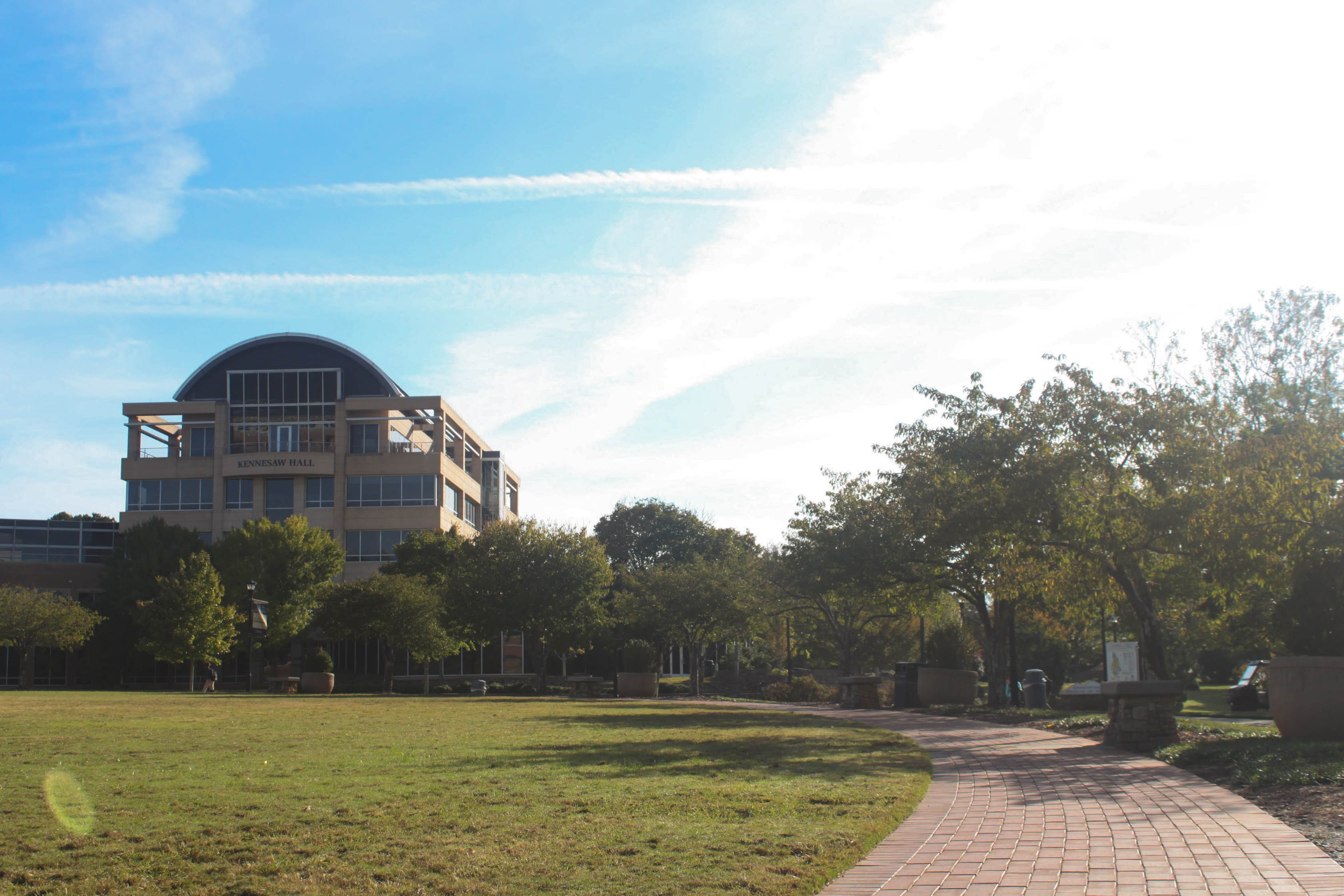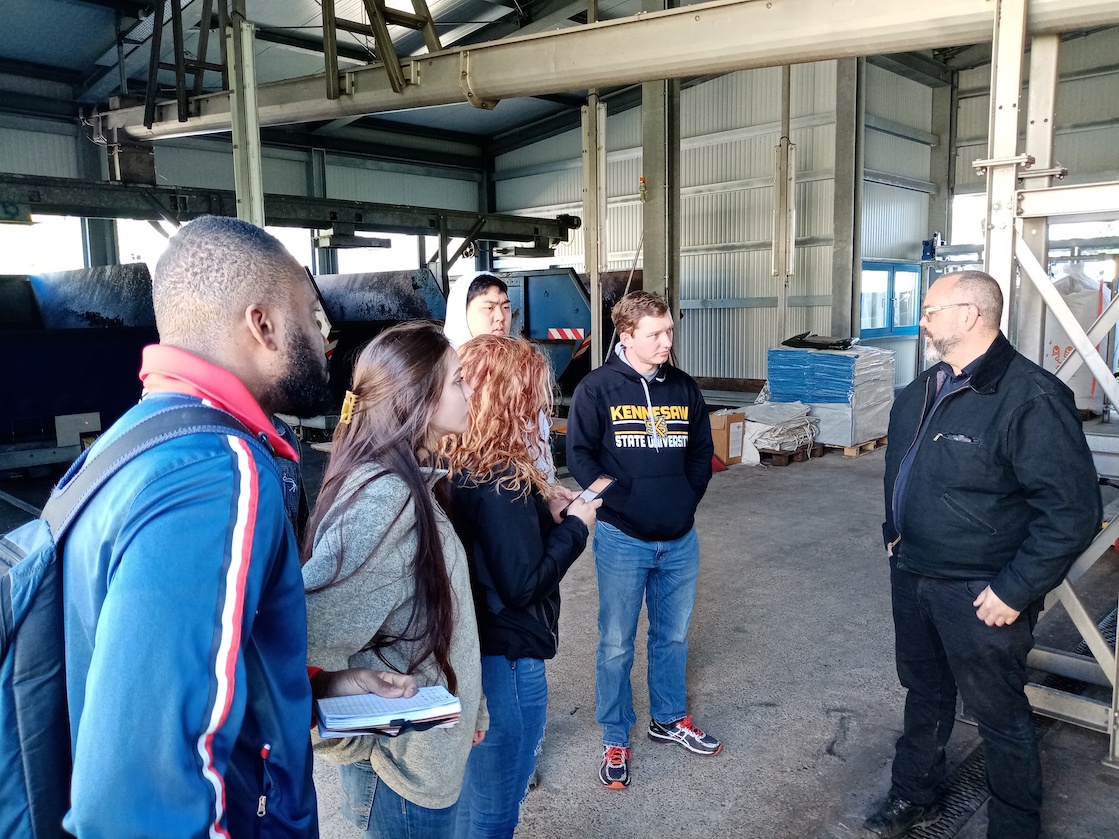The Chair and Directors Assembly of Kennesaw State were presented with recommendations for a university-wide, faculty workload baseline in early October.
Dr. Linda Noble, the interim provost and vice president of academic affairs at KSU, presented recommendations for a new workload baseline to the CDA which reviews KSU policies, procedures and operations as to their effectiveness and efficiency in fulfilling the mission of the academic departments, according to KSU’s website.
The proposed recommendations will set forth specific expectations in teaching, scholarship, creative activity and professional service which will be further discussed at a faculty senate meeting on Monday, Oct. 29.
A document was released to faculty members regarding the proposed baseline changes following the presentation of recommendations by Noble. The document consists of the rationale and parameters that will lead to a change in workload policy and will affect all tenure-track and tenured faculty.
Dr. Jennifer Purcell, an associate professor of leadership studies at KSU, is a scholar whose research explores strategies for developing community-engaged scholars and educators and developing organizational infrastructure to support reciprocal campus-community partnerships, according to KSU’s website.
Purcell said faculty members have three main areas of work performance which consist of teaching, scholarship and creative activity and service. She said faculty engage and adhere to specific percentages of these workload areas which can vary across disciplines, colleges and departments and institution types.
Purcell said faculty has an annual contract that they receive from the university, but they also have a Faculty Performance Agreement that specifically outlines how they will spend their time.
“It’s an annual conversation with your chair, and you discuss priorities [and] projects that you’re working on and student demand for classes,” Purcell said. “It’s a negotiation process determining where you’re going to focus your energy and resources for the next year.”
Purcell said there are examples of standard workload combinations in the Faculty Handbook, and some colleges and departments clarify these workload standards even further.
“It’s all the more important that we are clarifying metrics,” Purcell said. “At no point should any faculty member have any concern regarding how they’re going to be evaluated, what their supervisors are looking for and what their goals should be for any given year.”
Purcell said the interconnected conversation about clarifying metrics and faculty compensation consists of two different issues, and that she wanted to be careful not to conflate the two.
“If we have clear performance metrics, I would imagine it would make it easier for any employee to better advocate for themselves in terms of compensation, so they can clearly demonstrate that not only are they meeting expectations but also exceeding expectations,” Purcell said. “It’s difficult to make that case and advocate for yourself if you don’t have those clear metrics.”
Purcell said a fundamental element of faculty performance and promotion is the primacy of departmental guidelines where the faculty of each academic department can establish promotion and tenure guidelines with metrics that reflect their disciplinary norms.
Purcell said with regard to promotion and tenure policies and review policies for the university, changes are typically put in place for a year before they are applied and adopted. Purcell said the changes that could be made now would not go into effect until the fall of 2020.
“But having said that, if there are departments that are making changes, then it’s important to go ahead and be clear about any of those expectations so that they can be articulated in the Faculty Performance Agreement,” Purcell said.
Dr. Todd Harper, an associate professor of English at KSU, is the president of the American Association of University Professors which exists to protect academic freedom and promote shared governance between faculty, staff, administrators and students at KSU, according to KSU’s website.
Harper said that the workload document has stated intent which is to help clarify existing guidelines at the college and departmental levels. Harper said it is important to make sure KSU has clear measurements for workload requirements regarding publications, service or teaching.
“I’m hoping that it has a positive impact on the way that we evaluate our performance,” Harper said. “But we won’t really know that until the college and departmental committees can begin to work things out.”
Harper said the committee’s intent seemed to establish a loose set of parameters since the colleges and departments are much different from one another. He said the colleges and departments will be able to make specific revisions depending on how similar their current guidelines are in comparison to the proposed workload baseline changes.
The implementation of these changes to the workload baseline in each college and department are expected to be approved by the interim provost by April of 2019, according to the document.



